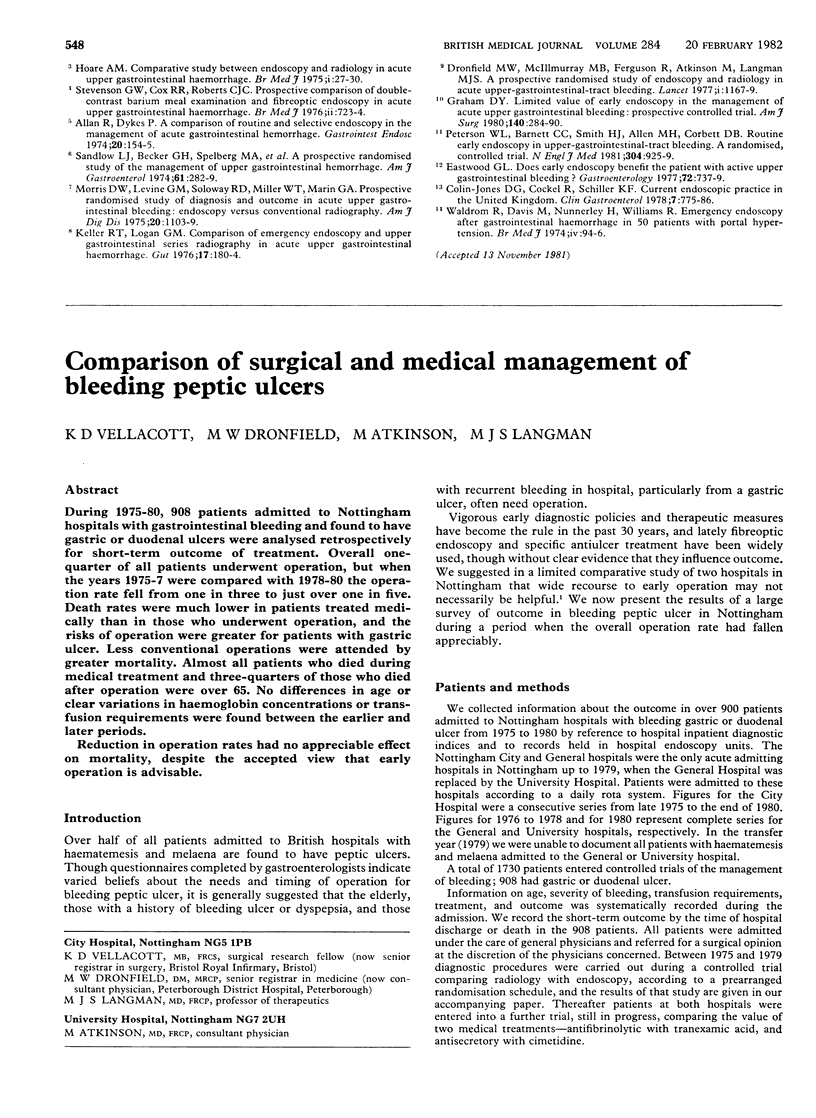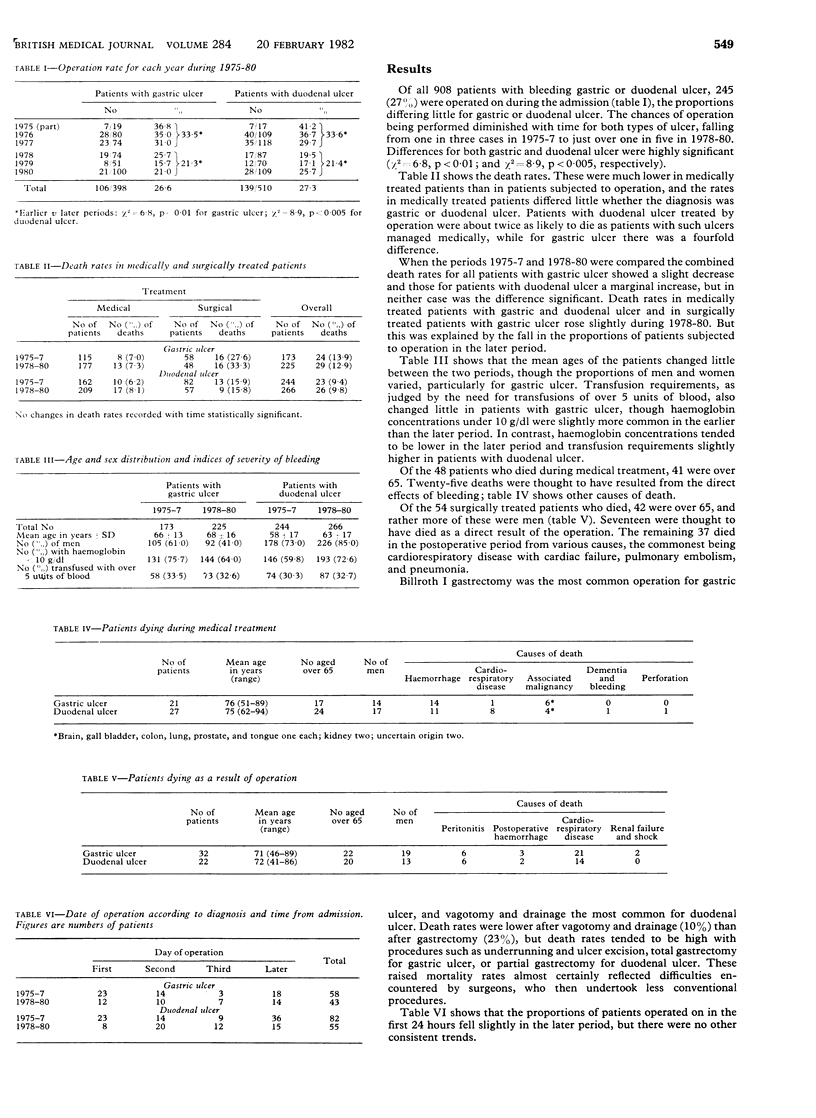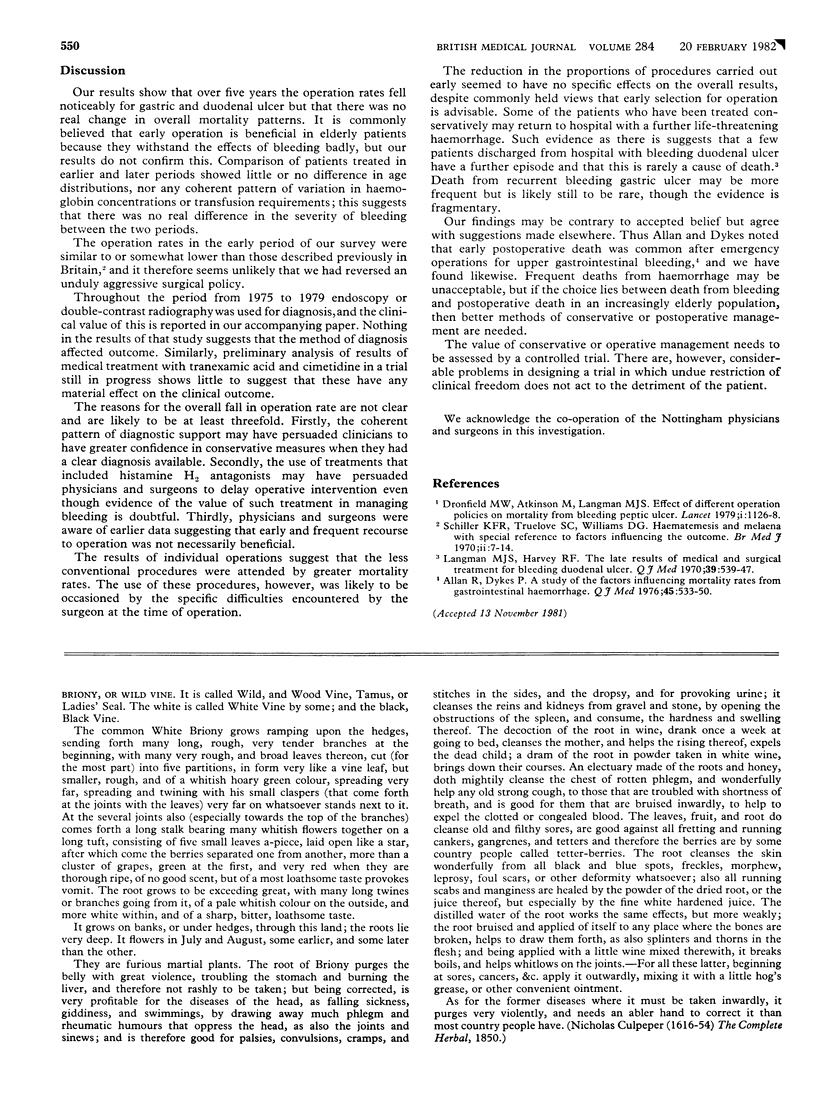Abstract
During 1975-80, 908 patients admitted to Nottingham hospitals with gastrointestinal bleeding and found to have gastric or duodenal ulcers were analysed retrospectively for short-term outcome of treatment. Overall one-quarter of all patients underwent operation, but when the years 1975-7 were compared with 1978-80 the operation rate fell from one in three to just over one in five. Death rates were much lower in patients treated medically than in those who underwent operation, and the risks of operation were greater for patients with gastric ulcer. Less conventional operations were attended by greater mortality. Almost all patients who died during medical treatment and three-quarters of those who died after operation were over 65. No differences in age or clear variations in haemoglobin concentrations or transfusion requirements were found between the earlier and later periods. Reduction in operation rates had no appreciable effect on mortality, despite the accepted view that early operation is advisable.
Full text
PDF


Selected References
These references are in PubMed. This may not be the complete list of references from this article.
- Allan R., Dykes P. A study of the factors influencing mortality rates from gastrointestinal haemorrhage. Q J Med. 1976 Oct;45(180):533–550. [PubMed] [Google Scholar]
- Dronfield M. W., Atkinson M., Langman M. J. Effect of different operation policies on mortality from bleeding peptic ulcer. Lancet. 1979 May 26;1(8126):1126–1128. doi: 10.1016/s0140-6736(79)91803-8. [DOI] [PubMed] [Google Scholar]
- Harvey R. F., Langman M. J. The late results of medical and surgical treatment for bleeding duodenal ulcer. Q J Med. 1970 Oct;39(156):539–547. [PubMed] [Google Scholar]
- Schiller K. F., Truelove S. C., Williams D. G. Haematemesis and melaena, with special reference to factors influencing the outcome. Br Med J. 1970 Apr 4;2(5700):7–14. doi: 10.1136/bmj.2.5700.7. [DOI] [PMC free article] [PubMed] [Google Scholar]


